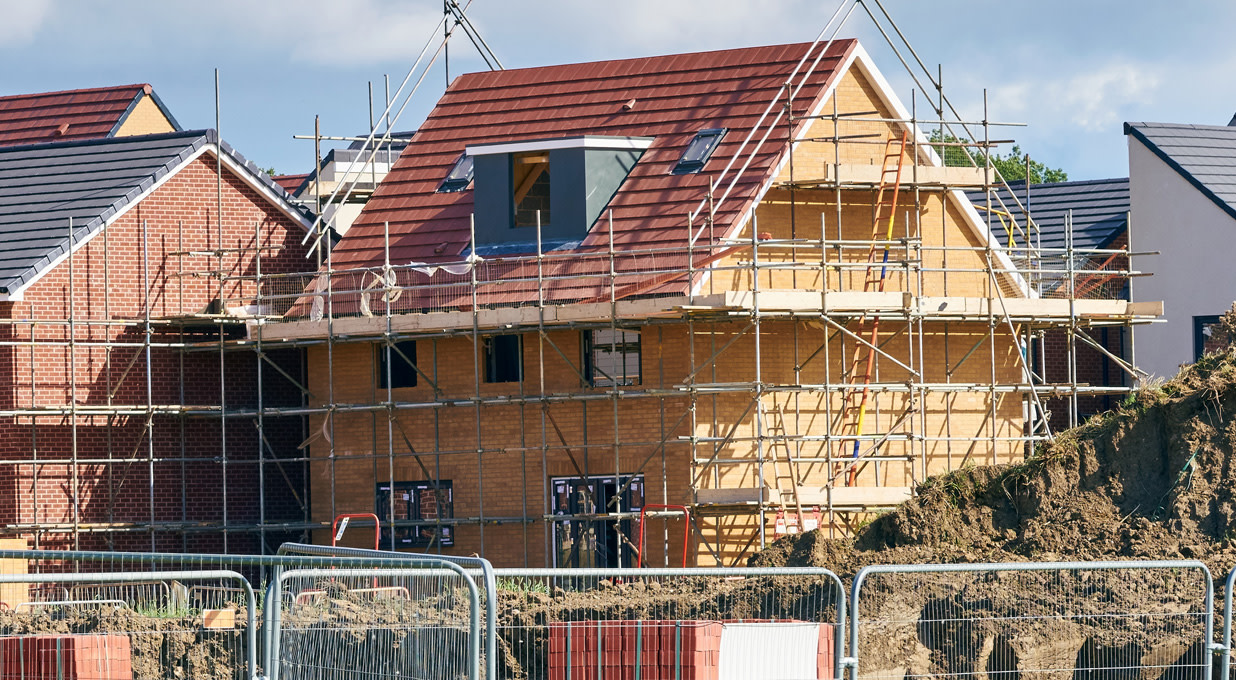Barratt Redrow’s full-year revenue fell by 2% to £5.6bn, on a like-for-like basis. The decline was driven by an 8% drop in completions to 16,565 new homes, partly offset by a 6% rise in average selling prices to £343,800.
The order book rose from £3.0bn to £3.1bn, while build cost inflation remained broadly flat.
Underlying pre-tax profits rose by 1% to £592mn. This was slightly ahead of market forecasts, helped by cost savings from the integration of Barratt and Redrow.
Net cash fell from £1.2bn to £0.8bn. Free cash flow fell from £89mn to £13mn, excluding the impact of the merger with Redrow.
Full-year completions are expected to be in the 17,200-17,800 range, but the group cautions that the UK Budget could bring “additional risk” to this target. Build cost inflation is expected to be between 1-2%.
Full-year dividends rose 8.6% to 17.6p per share.
The shares were broadly flat in early trading.
Our view
Barratt Redrow’s full-year results were largely as expected, with revenue stumbling slightly as affordability issues continue to weigh on demand. Buyer activity is expected to improve in the new financial year, but Barratt has warned that the upcoming UK Budget could bring additional risk to growth targets.
Despite some hurdles, such as higher stamp duty and slow changes to increasing planning approvals, year-to-date sales rates have held firm. Cost benefits are continuing to build as the integration of Barratt and Redrow nears completion. If operations can be streamlined and new homes delivered as expected, there’s plenty of opportunity for profits to rebound over the medium term. But as with any merger, there will be challenges.
Together, Barratt Redrow fell slightly short of its guidance to build between 16,800 and 17,200 new homes last year, in large part due to softer demand across London. We’re seeing that trend across the sector as affordability issues persist. It’s not a major issue for now, but it means the medium-term target to deliver up to 22,000 homes annually could take a while to reach.
Not only has the acquisition increased Barratt’s geographical reach, but it’s also increased the different types of customers it appeals to. The Redrow brand focuses on larger, higher-quality homes for more affluent buyers. The higher average selling prices of these homes should be a major positive for margins moving forward. Although, these higher-priced homes could potentially be subject to additional taxes as the Chancellor looks for ways to balance the books in November’s Budget.
The order book is in good shape and growing, and there’s a strong landbank ready to be unleashed when the housing market recovers. But with the pace of interest rate cuts set to slow down, it’s more likely to be a slow-burning improvement, rather than any major spring back into life. And of course, there are no guarantees.
On the balance sheet side, structuring the acquisition of Redrow as a share offer means there’s still a sizable net cash position. That gives flexibility to cope with any bumps in the road in the near term. Barratt’s increased scale should give it extra bargaining power when purchasing materials, which should help limit build cost inflation between a manageable 1-2% this year.
Barratt's valuation isn’t overly demanding, reflecting the tricky market conditions. If the market picks back up, the group looks to be in a strong position to grow. But there are no guarantees, and it could be a while before things improve, meaning there’s a chance of ups and downs along the way.
Environmental, social and governance (ESG) risk
Most housebuilders are relatively low risk in terms of ESG, particularly for those in Europe. However, there are some environmental risks to consider, from direct emissions to the impact of their buildings on the local ecology. The quality and safety of their buildings is also a key risk.
According to Sustainalytics, Barratt Redrow’s management of ESG risk is strong.
Commitments are in place to deliver net zero houses by 2030 through a combination of energy-efficient equipment, the use of renewables and the establishment of alternative heating technologies. While Barratt reports that all its revenues come from sustainable products, the total portion of recycled materials used in its operations is undisclosed.
Barratt Redrow key facts
All ratios are sourced from LSEG Datastream, based on previous day’s closing values. Please remember yields are variable and not a reliable indicator of future income. Keep in mind key figures shouldn’t be looked at on their own – it’s important to understand the big picture.
This article is not advice or a recommendation to buy, sell or hold any investment.No view is given on the present or future value or price of any investment, and investors should form their own view on any proposed investment.This article has not been prepared in accordance with legal requirements designed to promote the independence of investment research and is considered a marketing communication.Non - independent research is not subject to FCA rules prohibiting dealing ahead of research, however HL has put controls in place(including dealing restrictions, physical and information barriers) to manage potential conflicts of interest presented by such dealing.Please see our full non - independent research disclosure for more information.


